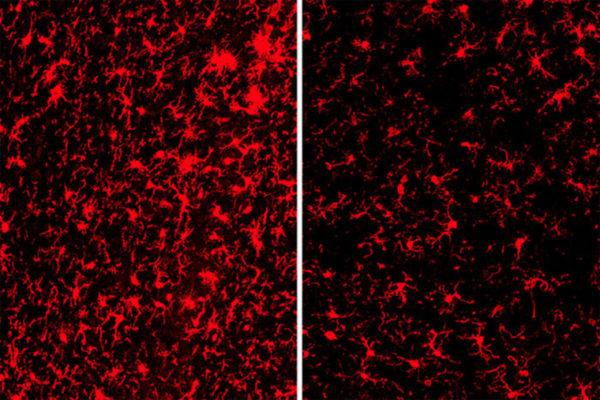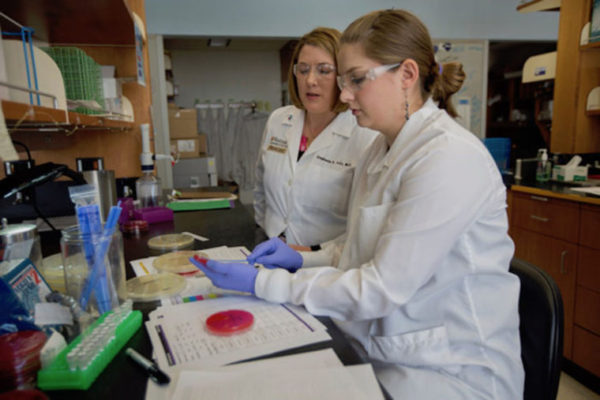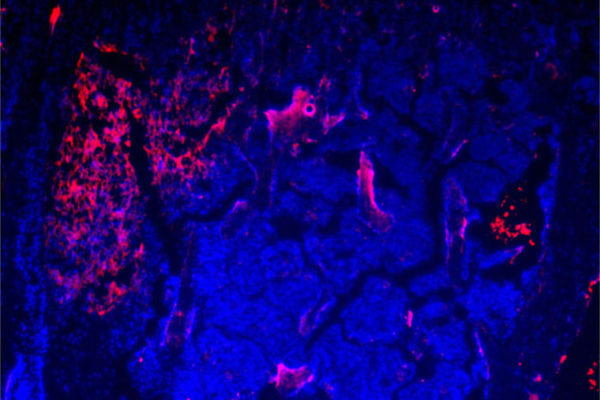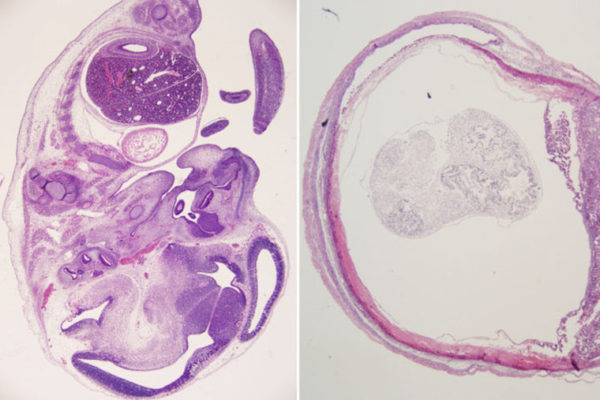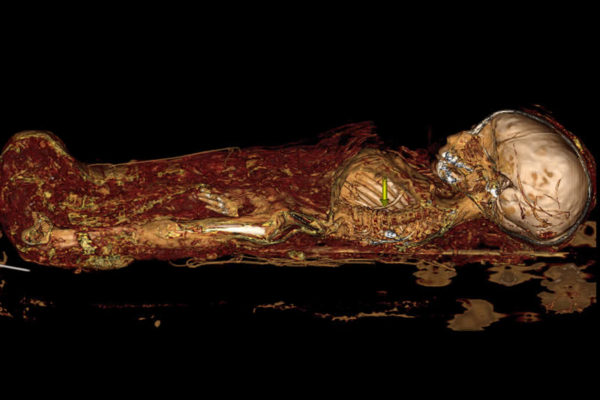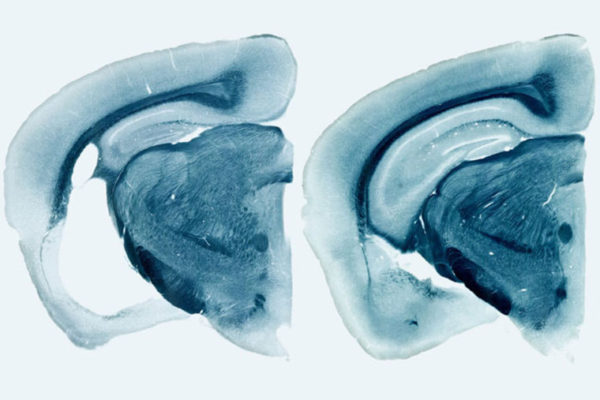Postdoc researcher Cao receives STAT honor
Bin Cao, a Washington University postdoctoral researcher who studies how the placenta protects the fetus from infections such as Zika virus, has been named a 2017 Wunderkind by the national biomedical publication STAT News.
Washington University a partner in greenway project to connect Forest Park to the Arch
Washington University in St. Louis is participating in a major public-private partnership that aims to connect Forest Park to the Gateway Arch grounds. The Chouteau Greenway will connect neighborhoods, parks, large employers, transit and dozens of cultural and educational institutions.
Alzheimer’s gene poses both risk — and benefits
A new study the School of Medicine shows that having a working copy of the gene TREM2 can reduce risk of Alzheimer’s disease under certain conditions but worsen disease in others.
Genetic testing helps set safe dose of common blood thinner
A new study led by the School of Medicine shows that genetic testing can improve the safety of warfarin, a common blood thinner, for patients at high risk of dangerous blood clots.
Antibiotics warranted for kids with minor staph infections
Research led by the School of Medicine indicates that prescribing antibiotics — in addition to lancing and draining staph-infected areas — reduces the risk of recurrent infections.
Chemo-loaded nanoparticles target breast cancer that has spread to bone
Scientists at the School of Medicine in St. Louis have developed a nanoparticle that can deliver chemotherapy directly to tumor cells that have spread to bone. Research in mice showed the treatment kills tumor cells and reduces bone destruction while sparing healthy cells from side effects.
Antibody protects against both Zika and dengue, mouse study shows
A new study led by researchers at Washington University School of Medicine in St. Louis shows that an antibody that protects against dengue virus is also effective against Zika in mice.
Breathing dirty air may harm kidneys
Outdoor air pollution has long been linked to major health conditions such as heart disease, stroke, cancer, asthma and chronic obstructive pulmonary disease. A new study now adds kidney disease to the list, according to researchers at the School of Medicine and the Veterans Affairs (VA) St. Louis Health Care System.
Scanning for clues to our ancient past
The mummified remains of a 7-month-old baby boy and pieces of skull from two teenage Triceratops underwent computed tomography (CT) scans Sept. 16 at the School of Medicine, in hopes researchers could learn more about the ancient past.
Newly ID’d role of major Alzheimer’s gene suggests possible therapeutic target
A study led by researchers at the School of Medicine shows that the presence of ApoE4 exacerbates the brain damage caused by toxic tangles of a different Alzheimer’s-associated protein: tau. In the absence of ApoE, tau tangles did very little harm to brain cells.
View More Stories


